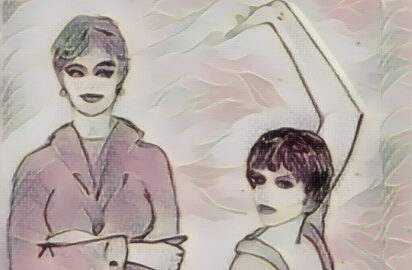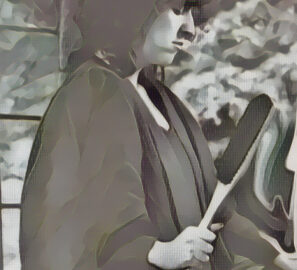Before we begin, I must tell you that the story you are about to hear is not my own, but that of Peter—a dear friend whose recollections of childhood in a quiet English town have always delighted me. Peter entrusted me with his story, and I share it now in my own words, hoping to capture the innocence, gentle mischief, and lessons that shaped his early years. (short pause) It was a morning much like any other in our peaceful little town, the sort of morning that promised nothing more than the usual round of lessons and laughter. The air was crisp, touched with the scent of dew and distant coal smoke, and the world felt wide and full of promise. The streets were still, except for the occasional milk float trundling by, and the distant chime of a church bell marking the hour. (short pause) Robert and I, both dressed in our tidy school uniforms—short trousers, blazers a little too large, and caps set smartly on our heads—walked along the pavement, our satchels bumping against our legs. The cold nipped at our knees, but we hardly noticed, lost in the cheerful chatter of childhood. Sometimes we would race each other to the next lamppost, or pause to poke at a puddle with a stick, the world around us a place of endless wonder. (short pause) Suddenly, Robert stopped, his bright eyes noticing something unusual by the roadside. “Look, Peter!” he called, pointing to a battered cardboard box. We peered inside and found a jumble of broken eggs, their yolks shining like little pools of sunshine. Amazingly, two eggs had survived, though one had a delicate crack. The sight was both funny and rather lovely, the fragile shells nestled among the broken ones, inviting a little adventure.
Robert’s face shone with excitement, his fair hair sticking out in all directions as he smiled at me. “Shall we?” he whispered, his eyes sparkling with the thrill of a secret. I hesitated, feeling the familiar flutter of excitement and worry that always came with Robert’s daring ideas. My heart beat quickly, torn between the wish to join in and the fear of being discovered. “What if someone sees us?” I asked, glancing up and down the empty street, the silence suddenly full of possibility. But Robert was already walking towards the railway bridge, the uncracked egg held carefully in his hand like a precious treasure. I followed, heart thumping, unable to resist the call of adventure, the feeling that we were about to do something we would always remember.
We reached the bridge just as the distant rumble of a train grew louder, the sound trembling through the soles of our shoes. The wind tugged at our hair and our blazers, carrying with it the metallic scent of the tracks and the faint, oily smell of steam. “Are you ready?” Robert called, his voice barely heard above the clatter of wheels on rails. I nodded, holding the cracked egg, my hands clammy and trembling. The world seemed to hold its breath as we leaned over the parapet, the cold stone rough beneath our fingers. The train appeared, a blur of movement and noise, and together, we let the eggs go. They arced through the air—one, two—falling far short of the train, landing harmlessly on the gravel below. For a moment, we stared at each other in surprise, the silliness of our failed plan dawning on us. Then, as if by magic, we burst into laughter, the sound echoing down the tracks, mingling with the fading roar of the train. “Well, that did not work at all!” Robert said, wiping tears from his eyes. The relief and joy of the moment washed over us, and for a few precious seconds, we felt as if nothing could harm us—happy, free, and full of life. “But it was splendid fun, was it not?” I agreed, and we set off for school, our spirits high, never imagining that our little adventure would have consequences.
That afternoon, as the sun shone through the classroom windows, casting golden stripes across our desks, a message arrived. The classroom was filled with the gentle hum of boys writing in their exercise books, the scratch of pencils and the occasional cough. Outside, the world was golden and still, the promise of summer just beginning to warm the air. “Peter and Robert, Miss Winthrop would like to see you in her office. At once.” The words hung in the air, heavy and serious. My stomach dropped, a cold knot of worry forming deep inside me. Robert’s face, usually so full of confidence, turned pale. We exchanged a glance—part fear, part acceptance. The walk to Miss Winthrop’s office seemed to last forever, our shoes squeaking on the polished floor, each step heavier than the last. The corridor seemed to stretch on and on, lined with portraits of stern headmasters and the faint scent of floor polish. I could hear my own heartbeat, loud and insistent, and my mind raced with anxious thoughts. Would she know? Had someone seen us? Was this the end of our good reputation at school? The waiting was almost worse than the deed itself.
At last, we reached the heavy oak door, its surface shining with years of polish and the weight of many secrets. Robert gave me a sideways look, trying to smile bravely. “Do not worry, Peter,” he whispered, though his voice trembled. I managed a nod, swallowing hard, my mouth suddenly dry. The secretary showed us in, her expression unreadable, and we found ourselves standing before Miss Winthrop—a tall, dignified lady with silver hair and sharp eyes that seemed to see right through us. But she was not alone. Beside her stood a lady we had never seen before, her expression serious, lips pressed into a thin line. The room was silent, except for the ticking of a brass clock on the mantelpiece, each tick a reminder of what was to come. The air was thick with tension, and I felt very small indeed, and for the first time, truly afraid. (pause)
Miss Winthrop cleared her throat, the sound sharp and commanding. “This is Miss Keating,” she said, gesturing to the unknown lady. Miss Keating was the town’s well-known busybody, a lady whose life seemed to revolve around noticing everything that happened in the neighbourhood. She had a reputation for reporting the pupils of our school to Miss Winthrop for the smallest of reasons. But as she stepped forward, her eyes narrowed with self-importance, I realised there was something even more unsettling about her. It was as if she took a special, almost cheerful pleasure in the thought of children—especially boys—being punished. There was a glint in her eye, a certain satisfaction in her tone, that made it clear Miss Keating was not only a busybody, but someone who enjoyed seeing boys corrected for their mischief. (short pause) And, looking back, it seems to me that Miss Keating was not alone in this. In those days, there seemed to be quite a number of women—matrons, teachers, shopkeepers, and even mothers—who showed a similar delight in hearing about boys being disciplined for their misdeeds. It was as if the very idea of a boy being caned or slippered was a story to be shared with a knowing smile. (short pause) What made it all the more difficult was that these same women seemed to believe, without question, that girls were made of sugar and spice and all things nice. In their eyes, girls could do no wrong, while boys were always up to mischief and in need of correction. The double standard was as clear as day, and it made the prospect of facing their judgment all the more daunting. The unfairness of it stung, but I dared not say a word.
“I saw these two throwing eggs at the train,” she said firmly, her tone full of the importance of her discovery. “It was reckless and dangerous.” Robert and I exchanged a horrified glance, our faces turning pale. The shame of being caught, of being brought before the headmistress and this stranger, was almost too much to bear. Miss Winthrop’s face grew stern, her lips pressed into a thin, unforgiving line. (short pause) It was well known among the pupils that Miss Winthrop would always believe the word of an adult over that of a child, no matter the circumstance. In her eyes, the testimony of a grown-up was never to be doubted, while the explanations or protests of her students were met with doubt, if not outright disbelief. There was never any hope of pleading our case, not when an adult had spoken. “Thank you, Miss Keating, for bringing this to our attention. Peter, Robert, you will both stay after school to discuss the consequences of your behaviour.” My heart sank as the reality of our situation became clear.
A discussion on the consequences of our behaviour would invariably mean six strokes of the cane.





















































